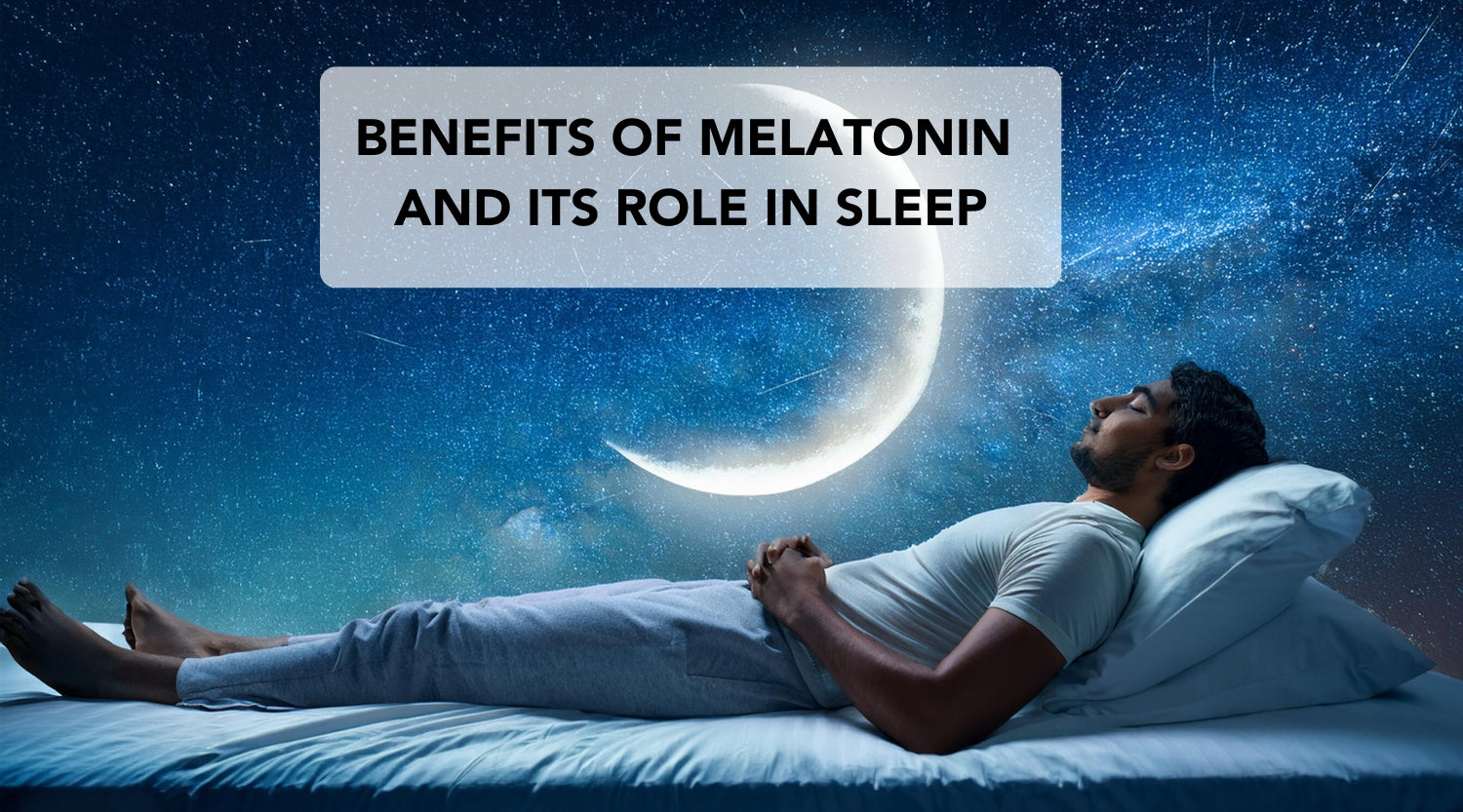
Unlocking the Potential of Melatonin: Benefits, Optimal Dosage, and Its Role in sleep
Understanding Melatonin: What It Is and How It Works
The Science Behind Melatonin Production and Release
Melatonin is a hormone made by your brain. It helps control your sleep. As it gets dark, your body makes more melatonin. This signals your body to prepare for sleep. Light affects this process. Bright light slows melatonin production. This is why screens before bed can harm sleep. Your body has a natural clock, the 'circadian rhythm'. Melatonin helps keep this clock on time. It tells your body when it's time to rest. Understanding this can help you sleep better.
Melatonin's Role in the Sleep-Wake Cycle
Melatonin aligns with nature's light-dark cycle. When darkness falls, your body ramps up melatonin production. This signals your body to prepare for sleep. During the day, light exposure tells your body to hold back melatonin. This keeps you alert and awake. A regular melatonin cycle is key for a sound sleep rhythm. It helps manage your internal clock, or circadian rhythm, for better rest.
The Health Benefits of Melatonin: What Science Says
Melatonin and Its Impact on Sleep Quality
Melatonin is known for improving sleep quality. Studies show that taking it can help shorten the time it takes to fall asleep. It also promotes a more restful sleep pattern. This can be quite useful for people with sleep disorders. Melatonin use has particularly helped those with insomnia and jet lag. Moreover, it can enhance sleep for shift workers. The sustained sleep quality can lead to better overall health and performance. Importantly, melatonin doesn’t just induce sleep, it improves its restorative aspects as well.
Exploring the Other Health Benefits of Melatonin
Beyond improving sleep, melatonin has several health benefits. It acts as a potent antioxidant, which means it helps protect cells from damage. This action can aid in reducing the risk of chronic diseases. It may also boost immune function, keeping you healthier. Melatonin is linked to better eye health as well, due to its protective effects on the retina. Research suggests it can help regulate blood pressure and body temperature. Some studies indicate a potential role in supporting brain health and mood regulation. It's clear that melatonin's impact extends far beyond just sleep.
Navigating Melatonin Use: Best Practices and Expert Advice
Determining the Right Melatonin Dosage for You
Finding your ideal melatonin dose can be tricky. Too little may not help, while too much can have side effects. Start low, often 0.5 to 3 milligrams, and see how you feel. Adults can take up to 5 milligrams, depending on their needs. But, it's best to consult with a healthcare provider. They can advise based on your sleep issues, age, and overall health. Also, consider your body's response and adjust the dose slowly. Remember, the goal is better sleep with the lowest effective dose.
Expert Tips on Incorporating Melatonin into Your Daily Routine
Melatonin is key for sleep health. Here's how to use it right:
- Pick a Time: Take melatonin 30 minutes before bed.
- Consistency Counts: Use it at the same time each night.
- Start Small: Begin with the lowest dose.
- Watch for Signs: Adjust based on your sleep quality.
- Think Short-Term: Don't rely on it long-term without a doctor's advice.
- Lifestyle Matters: Pair it with good sleep habits.
- Stay Informed: Keep up-to-date with the latest research.
Follow these steps for the best results with melatonin.
Share
